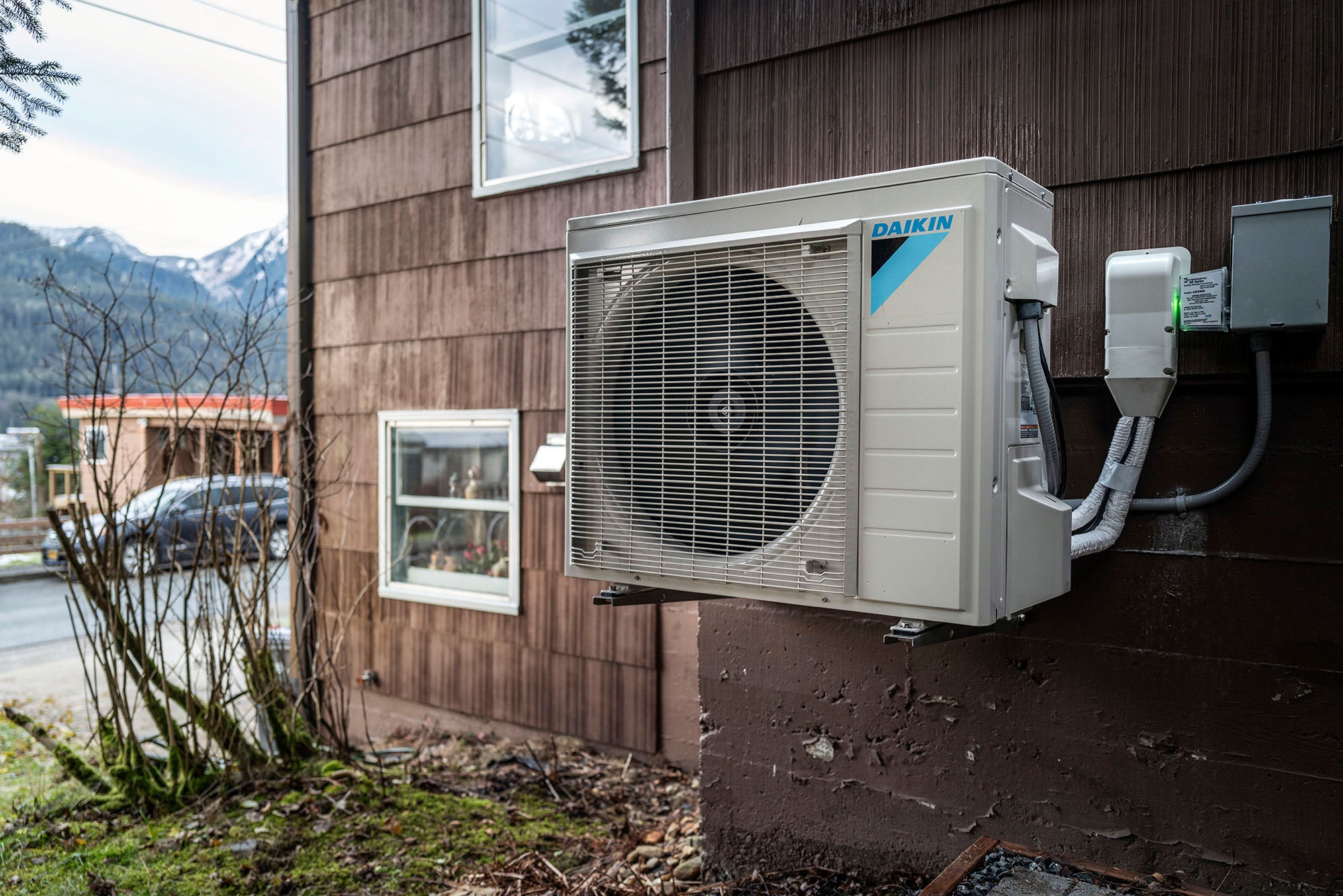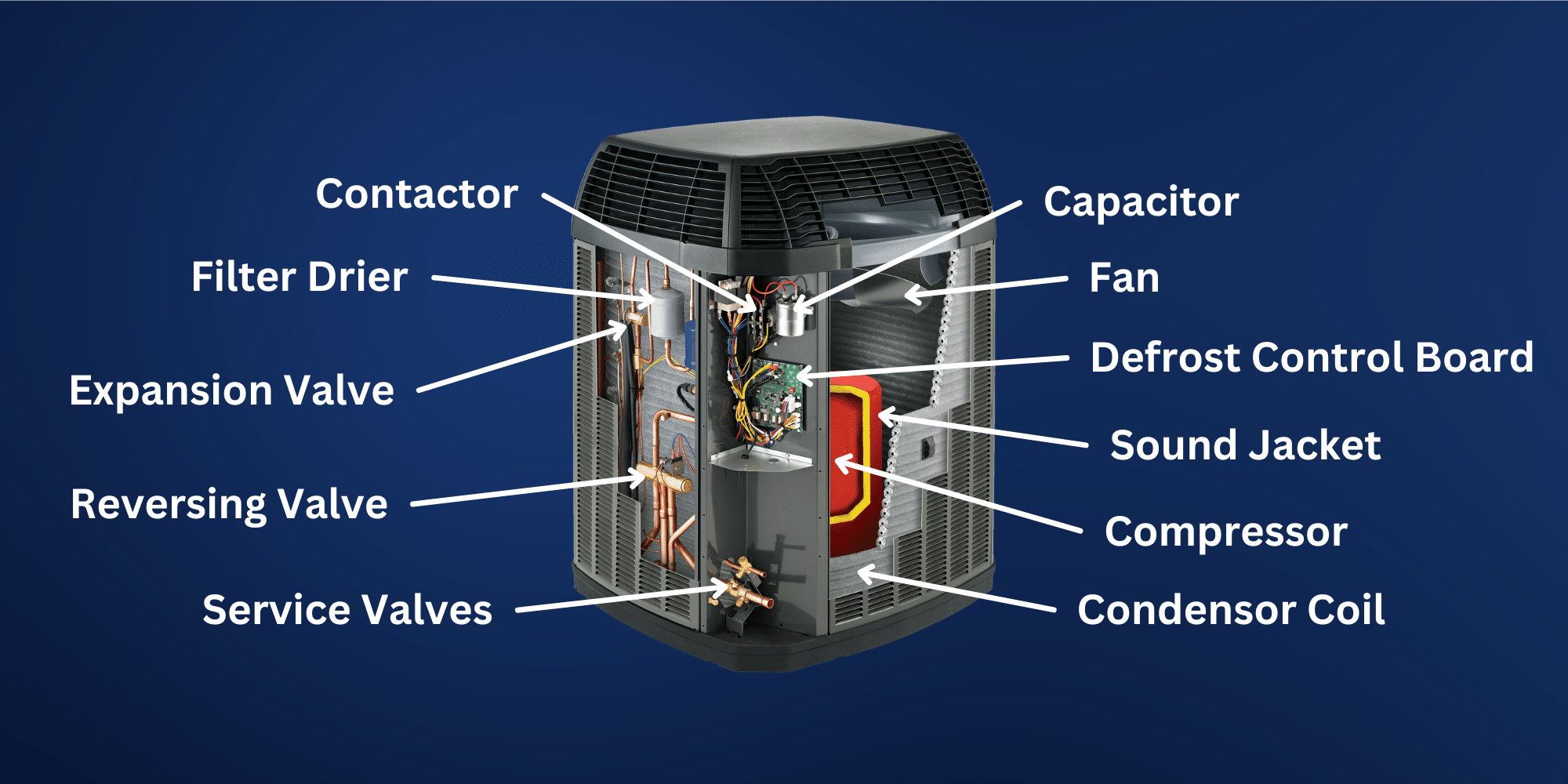Are you looking for a smarter way to heat and cool your Alabama home? Heat pumps might be the solution you’ve been searching for.
Understanding how heat pumps work and how they can benefit your home is key to making the right choice. You’ll discover everything you need to know about heat pumps—from saving money on energy bills to improving comfort year-round. Keep reading to find out how this technology can make a real difference in your home and your wallet.

Credit: earthjustice.org
Heat Pump Basics
Heat pumps are a popular choice for Alabama homeowners. They provide both heating and cooling in one system. Understanding how they work helps you make smart decisions for your home comfort and energy bills.
Heat pumps use electricity to move heat from one place to another. They do not create heat like traditional heaters. This makes them energy efficient and good for mild climates like Alabama.
How Heat Pumps Work
Heat pumps move heat using a cycle of evaporation and condensation. During winter, they pull heat from outside air and bring it inside. Even cold air contains some heat.
In summer, the process reverses. Heat pumps remove heat from inside your home and release it outside. This cools your house without using a lot of energy.
Types Of Heat Pumps
Air-source heat pumps are the most common type. They exchange heat with the outdoor air. These work well in Alabama’s climate.
Ground-source or geothermal heat pumps use the earth’s stable temperature. They are more efficient but cost more to install.
There are also ductless mini-split heat pumps. They are good for homes without ductwork. Each type has its benefits depending on your needs.

Credit: www.watkinsheating.com
Benefits For Alabama Homes
Homeowners in Alabama can gain many advantages from heat pumps. These systems fit well with Alabama’s mild winters and hot summers. Heat pumps provide efficient heating and cooling, making homes comfortable all year. They use less energy than traditional systems. This helps reduce monthly utility bills. Here are some key benefits of heat pumps for Alabama homes.
Energy Efficiency
Heat pumps move heat instead of creating it. This process uses less electricity. Alabama’s climate suits heat pumps well. They work efficiently in mild winter temperatures. This means less energy is needed to heat or cool your home. Using less energy helps the environment. It also lowers your home’s carbon footprint.
Cost Savings
Heat pumps can lower energy bills. They use less power than electric heaters or air conditioners. Installation costs are often offset by savings over time. Heat pumps require less maintenance, saving money on repairs. Some local programs offer rebates for heat pump installation. These savings make heat pumps a smart choice for many Alabama homes.
Year-round Comfort
Heat pumps provide both heating and cooling. This means one system works all year. They maintain steady temperatures inside your home. No more cold spots in winter or hot rooms in summer. Heat pumps also improve indoor air quality by filtering air. This creates a healthier living space for your family.
Climate Considerations
Choosing the right heating and cooling system depends on the local climate. Alabama’s weather plays a big role in how heat pumps work. Understanding climate factors helps homeowners decide if a heat pump fits their needs. It also explains how these systems handle Alabama’s unique conditions.
Alabama Weather Impact
Alabama has mild winters and hot summers. Temperatures rarely drop below freezing. This makes heat pumps a good option for heating. They work efficiently without extra backup heat. Summers are often hot and sunny. Heat pumps cool homes well during these months. The system uses less electricity than traditional air conditioners. This can lower energy bills and improve comfort year-round.
Performance In Humid Conditions
Alabama’s humidity is high, especially in summer. Moist air can affect heat pump performance. Heat pumps remove humidity while cooling. This helps keep indoor air comfortable. Proper installation and maintenance are important. They ensure the system handles moisture effectively. A heat pump with a good dehumidification function is ideal. It improves air quality and prevents mold growth inside homes.
Installation Insights
Installing a heat pump in Alabama requires careful planning. The right setup ensures comfort and energy savings throughout the year.
Proper installation affects how well the heat pump works. It also influences its lifespan and maintenance needs.
Choosing The Right System
Select a heat pump that fits your home size and climate. Alabama’s warm climate suits air-source heat pumps well.
Consider the unit’s efficiency ratings, like SEER and HSPF. Higher ratings mean better energy savings and performance.
Look for a model designed to handle Alabama’s humidity levels. This helps prevent moisture problems inside your home.
Professional Installation Tips
Hire a licensed technician with heat pump experience. Proper installation requires specialized tools and knowledge.
Ensure the installer checks your home’s insulation and ductwork first. Good insulation reduces heat loss and energy use.
The technician should place the outdoor unit in a shaded, ventilated spot. This improves efficiency and extends the unit’s life.
Proper refrigerant charging and electrical connections are critical. Mistakes can lower performance or damage the system.
Ask the installer to explain how to operate and maintain your heat pump. Regular care keeps it running smoothly and saves money.
Maintenance And Care
Heat pumps need regular care to work well in Alabama’s climate. Proper maintenance saves energy and lowers bills. It also extends the system’s life and keeps your home comfortable.
Simple steps can keep your heat pump running smoothly all year. Catching problems early stops costly repairs later. Knowing what to check and watch for helps you protect your investment.
Routine Maintenance Tasks
Change or clean air filters every 1 to 3 months. Dirty filters reduce airflow and efficiency. Clear leaves and debris around the outdoor unit. Keep at least two feet of space free around it. Check for ice buildup in winter. Remove ice carefully if you see any.
Clean the evaporator and condenser coils once a year. Dust and dirt block heat transfer. Make sure the thermostat is set correctly. Test the system in both heating and cooling modes. Listen for unusual noises during operation.
Signs Of Needed Repairs
Watch for weak airflow or uneven temperatures. These may indicate airflow problems or refrigerant leaks. Strange noises like grinding or squealing need a technician. Increased energy bills without more use could mean inefficiency. Frequent cycling on and off is another warning sign.
Water puddles near the indoor unit mean drainage issues. A burning smell suggests electrical trouble and needs urgent care. Delayed heating or cooling can signal compressor problems. Early repair prevents bigger damage and higher costs later.

Credit: propertymonkey.net
Incentives And Rebates
Heat pumps offer energy savings and comfort for Alabama homes. Many programs provide financial help to reduce installation costs. These incentives make heat pumps more affordable and attractive for homeowners.
Understanding available rebates and incentives can save hundreds or even thousands of dollars. Some programs come from local sources, while others are federal. Knowing how to apply ensures you get the best deal possible.
Local And Federal Programs
Alabama residents can access various programs that support heat pump installation. Local utility companies often offer rebates to encourage energy-efficient upgrades. The Alabama Power and other local utilities sometimes provide cash-back incentives.
At the federal level, the ENERGY STAR program offers tax credits for qualifying heat pumps. The Inflation Reduction Act also increased these tax benefits. These programs lower the upfront cost and speed up return on investment.
How To Apply
Start by checking eligibility criteria for each rebate or tax credit. Gather necessary documents like proof of purchase and installation details. Most programs require submitting an application form either online or by mail.
Apply soon after installation to avoid missing deadlines. Keep copies of all receipts and paperwork for your records. Following instructions carefully improves your chance of approval and faster rewards.
Common Myths
Heat pumps are becoming popular in Alabama homes. Many homeowners have questions and worries about them. Some ideas about heat pumps are not true. These myths can stop people from choosing a heat pump. Knowing the facts helps make the right choice. Let’s clear up some common myths about heat pumps.
Debunking Efficiency Myths
Some think heat pumps do not work well in cold weather. This is not true. Heat pumps can still heat homes in Alabama winters. They use less energy than traditional heaters. This saves money on electric bills. Heat pumps also cool homes in summer. They do both jobs efficiently all year.
Addressing Cost Concerns
Many believe heat pumps are too costly to buy and install. The upfront price can be higher than other systems. But heat pumps lower energy bills over time. This balance helps recover the initial cost. There are also rebates and incentives in Alabama. These reduce the cost further. Heat pumps last many years with proper care.
Frequently Asked Questions
What Is A Heat Pump And How Does It Work In Alabama?
A heat pump moves heat from outside to inside your home and vice versa, saving energy in Alabama’s climate.
Are Heat Pumps Cost-effective For Alabama Homeowners?
Heat pumps lower energy bills by using less electricity than traditional heating and cooling systems.
Can Heat Pumps Handle Alabama’s Hot Summers And Mild Winters?
Yes, heat pumps cool in summer and warm your home efficiently during mild Alabama winters.
How Long Do Heat Pumps Typically Last In Alabama Homes?
Heat pumps usually last 10 to 15 years with regular maintenance in Alabama’s weather conditions.
What Maintenance Do Alabama Homeowners Need For Heat Pumps?
Regular filter cleaning, checking refrigerant levels, and annual professional inspections keep heat pumps running well.
Conclusion
Heat pumps offer an efficient way to heat and cool Alabama homes. They save energy and lower utility bills. Proper installation and maintenance keep them working well. Choosing the right size matters for comfort and savings. Many homeowners find heat pumps reliable in Alabama’s climate.
Think about long-term benefits before deciding. A smart choice for both comfort and cost. Simple steps can improve your home’s energy use. Heat pumps suit many homes and budgets. Consider this option to stay comfortable year-round.
